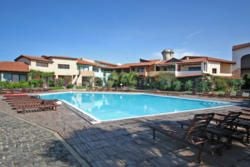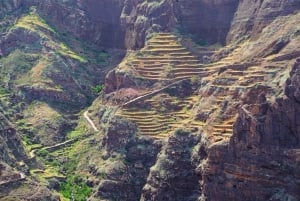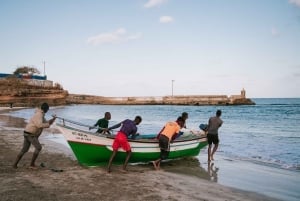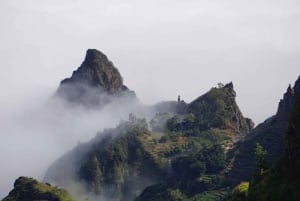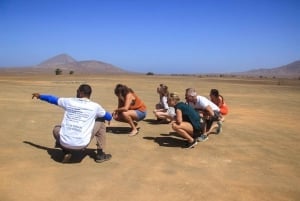Buying a Property in Cape Verde
Overview
A small archipelago located 650km off the coast of Western Africa, Cape Verde seemed too remote and unknown to become one of the world´s real estate market sensations, but so it did, between 2004 and 2008, when property prices increased substantially.
The hot and dry islands of volcanic origin owe their good standing with real estate investors not only to natural beauty, but also to political and social stability and sound economic policies. A steady growth and an increase of direct flights, notably from the UK, helped Cape Verde in establishing itself in the international real estate market.
The advantages of Cape Verde as a tourist destination include its closeness to Europe (when compared to other tropical destinations), friendly people, sunshine all year long, crystal-clear waters and sandy beaches, improving healthcare services and low crime rates. Although the world economy crisis had a negative effect on the real estate market in Cape Verde in 2008, government programs and incentives have managed to attract some of the top players in the hotel and resort business, who have been investing heavily in Cape Verde over the last couple of years.
Predictions for the market in 2012 are extremely positive, and opportunities for investors abound all over Cape Verde, both for in-resort and non-resort properties, with a large supply of prime beach-front condos and villas with a potential for profitable future sales and year-round vacation rentals, due to the consistent warm weather.
Market Basics
Cape Verde property is significantly more affordable than the Canary Islands, located only 240km towards the North. The rental market is very young, and foreigners tend to buy property for their own use, but according to local real estate agents, a modern studio in a prime location on Sal island could typically bring up to 9% returns. The beauty of it is that, without a winter or a hurricane season, Cape Verde offers 12 months of summer vacation-rental potential.
The 2004-2008 Bubble
Starting in 2004, the property market in Cape Verde exploded, but after the 2006-2007 boom, the 2008 economic crisis hit Cape Verde and the bubble burst. However, the effects of the fall were not as serious as in other booming areas such as Spain. According to the experts, the market was generally "not as over-inflated" prior to the credit crunch, therefore the correction turned out to be more manageable than in other similar markets.
During the most difficult times, it was local buyers alongside savvy long-term investors, retirees and wealthy buyers for whom price was not a concern, that kept the market afloat. Over time, prices have settled at a more realistic level, not too high that buyers will be deterred and not too low that sellers will not be interested, which ensures a healthy level of market activity. In fact, in many cases, prices have gone back to 2004 levels, and all predictions are favorable for a steady, yet more "realistic" and stable growth.
The Buying Process & Local Tax Information
The purchase system in Cape Verde is similar to Portugal´s. Properties are sold freehold, under a conveyancing system. First there is a verbal agreement, then the buyer´ lawyer has to get started with the legal searches, a fiscal number is then to be obtained from the tax office. The next step involves signing a provisional contract, for which the buyer must pay a deposit (10-30% of the price), which is non-refundable. This contract is considered legally binding for both parties, provided the legal searches encounter no irregularities.
When the provisional contract’s conditions are met, a final contract is signed, with a Notary Public present, and the full payment is made. One month later, the new ownership is ready to be registered with the corresponding local Land Registry and the tax office.
The transfer tax for property sales is 3%, the notary and registration fees and stamp duty will usually be at about 2.5% per cent of the purchase price. If you are buying off plan, there will be five stages in the payment schedule. While purchasers are required to fund these payments initially, they can also obtain a mortgage on the property´s official value after completion. The property tax per year is 3% on 25% of a property’s total value.
There is a limited availability of UK mortgages on Cape Verde property, and loans are generally only obtainable when construction has been completed, therefore, most UK buyers tend to pay cash or obtain funds by remortgaging a property in the UK. Mortgages enable people to afford property when they do not have the cash, but the absence of mortgages also helps keep prices low. As the Cape Verde economy grows, banks are bound to start offering mortgages. This also presents an opportunity to make purchases now, before the prices go up, as a result of the establishment of mortgages.
Rental income tax is 20% and capital gains tax, which is paid when you sell a property at over 30% more than what you originally paid for it, is 3%. In the case of UK investors, they may reduce their UK income tax by the amount paid in Cape Verde.
Investing through SIPPS
Some top resort developments in Cape Verde are currently offering the chance of investing using your Self-Invested Personal Pension funds from the UK. This can secure a higher rate of returns on pension fund investments and, although personal use of the property is not allowed in this type of deals, it is possible for investors to rent the property of their choice back from the SIPP vehicle.
The final words of advice are to make sure you take your time when purchasing a property abroad and consult a qualified lawyer who can guide you through the process.


